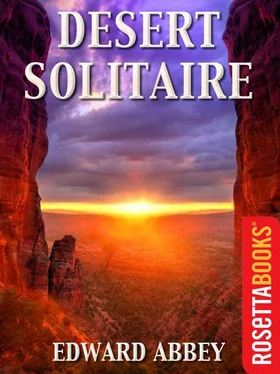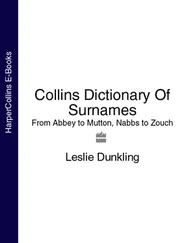Abbey, Edward - Desert Solitaire (Edward Abbey Series )
Здесь есть возможность читать онлайн «Abbey, Edward - Desert Solitaire (Edward Abbey Series )» — ознакомительный отрывок электронной книги совершенно бесплатно, а после прочтения отрывка купить полную версию. В некоторых случаях можно слушать аудио, скачать через торрент в формате fb2 и присутствует краткое содержание. Год выпуска: 2011, Издательство: RosettaBooks, Жанр: Старинная литература, на английском языке. Описание произведения, (предисловие) а так же отзывы посетителей доступны на портале библиотеки ЛибКат.
- Название:Desert Solitaire (Edward Abbey Series )
- Автор:
- Издательство:RosettaBooks
- Жанр:
- Год:2011
- ISBN:нет данных
- Рейтинг книги:4 / 5. Голосов: 1
-
Избранное:Добавить в избранное
- Отзывы:
-
Ваша оценка:
- 80
- 1
- 2
- 3
- 4
- 5
Desert Solitaire (Edward Abbey Series ): краткое содержание, описание и аннотация
Предлагаем к чтению аннотацию, описание, краткое содержание или предисловие (зависит от того, что написал сам автор книги «Desert Solitaire (Edward Abbey Series )»). Если вы не нашли необходимую информацию о книге — напишите в комментариях, мы постараемся отыскать её.
Desert Solitaire (Edward Abbey Series ) — читать онлайн ознакомительный отрывок
Ниже представлен текст книги, разбитый по страницам. Система сохранения места последней прочитанной страницы, позволяет с удобством читать онлайн бесплатно книгу «Desert Solitaire (Edward Abbey Series )», без необходимости каждый раз заново искать на чём Вы остановились. Поставьте закладку, и сможете в любой момент перейти на страницу, на которой закончили чтение.
Интервал:
Закладка:
Ordinarily it is possible for a man to walk across quicksand, if he keeps moving. But if he stops, funny things begin to happen. The surface of the quicksand, which may look as firm as the wet sand on an ocean beach, begins to liquefy beneath his feet. He finds himself sinking slowly into a jelly-like substance, soft and quivering, which clasps itself around his ankles with the suction power of any viscous fluid. Pulling out one foot, the other foot necessarily goes down deeper, and if a man waits too long, or cannot reach something solid beyond the quicksand, he may soon find himself trapped. The depth to which he finally sinks depends upon the depth and the fluidity of the quicksand, upon the nature of his efforts to extricate himself, and upon the ratio of body weight to volume of quicksand. Unless a man is extremely talented, he cannot work himself in more than waist-deep. The quicksand will not pull him down. But it will not let him go either. Therefore the conclusion is that while quicksand cannot drown its captive, it could possibly starve him to death. Whatever finally happens, the immediate effects are always interesting.
My friend Newcomb, for instance. He has only one good leg, had an accident with the other, can’t hike very well in rough country, tends to lag behind. We were exploring a deep dungeonlike defile off Glen Canyon one time (before the dam). The defile turned and twisted like a snake under overhanging and interlocking walls so high, so close, that for most of the way I could not see the sky. The floor of this cleft was irregular, wet, sandy, in places rather soupy, and I was soon far ahead and out of sight of Newcomb.
Finally I came to a place in the canyon so narrow and dark and wet and ghastly that I had no heart to go farther. Retracing my steps I heard, now and then, a faint and mournful wail, not human, which seemed to come from abysmal depths far back in the bowels of the plateau, from the underworld, from subterranean passageways better left forever unseen and unknown. I hurried on, the cries faded away. I was glad to be getting out of there. Then they came again, louder and as it seemed from all sides, out of the rock itself, surrounding me. A terrifying caterwauling it was, multiplied and amplified by echoes piled on echoes, overlapping and reinforcing one another. I looked back to see what was hunting me but there was only the naked canyon in the dim, bluish light that filtered down from far above. I thought of the Minotaur. Then I thought of Newcomb and began to run.
It wasn’t bad. He was in only a little above the knees and sinking very slowly. As soon as he saw me he stopped hollering and relit his pipe. Help, he said, simply and quietly.
What was all the bellowing about? I wanted to know. I’m sorry, he said, but it’s a horrible way to die. Get out of that mud, I said, and let’s get out of here. It ain’t just mud, he said. I don’t care what it is, get out of there; you look like an idiot. I’m sinking, he said.
And he was. The stuff was now halfway up his thighs.
Don’t you ever read any books? I said. Don’t you have sense enough to know that when you get in quicksand you have to lie down flat? Why? he asked. So you’ll live longer, I explained. Face down or face up? he asked next.
That stumped me. I couldn’t remember the answer to that one. You wait here, I said, while I go back to Albuquerque and get the book.
He looked down for a moment. Still sinking, he said; please help?
I stepped as close to him as I could without getting bogged down myself but our extended hands did not quite meet. Lean forward, I said. I am, he said. All the way, I said; fall forward.
He did that and then I could reach him. He gripped my wrist and I gripped his and with a slow steady pull I got him out of there. The quicksand gurgled a little and made funny, gasping noises, reluctant to let him go, but when he was free the holes filled up at once, the liquid sand oozing into place, and everything looked as it had before, smooth and sleek and innocent as the surface of a pudding. It was in fact the same pool of quicksand that I had walked over myself only about an hour earlier.
Quicksand is more of a menace to cattle and horses, with their greater weight and smaller feet, than it is to men, and the four-legged beasts generally avoid it when they can. Sometimes, however, they are forced to cross quicksand to reach water, or are driven across, and then the cattleman may have an unpleasant chore on his hands. Motor vehicles, of course, cannot negotiate quicksand; even a four-wheel-drive jeep will bog down as hopelessly as anything else.
Although I hesitate to deprive quicksand of its sinister glamour I must confess that I have not yet heard of a case where a machine, an animal or a man has actually sunk completely out of sight in the stuff. But it may have happened; it may be happening to somebody at this very moment. I sometimes regret that I was unable to perform a satisfactory experiment with my friend Newcomb when the chance presented itself; such opportunities come but rarely. But I needed him; he was among other things a good camp cook.
After the storms pass and the flash floods have dumped their loads of silt into the Colorado, leaving the streambeds as arid as they were before, it is still possible to find rainwater in the desert. All over the slickrock country there are natural cisterns or potholes, tubs, tanks and basins sculptured in the soft sandstone by the erosive force of weathering, wind and sand. Many of them serve as little catchment basins during rain and a few may contain water for days or even weeks after a storm, the length of time depending on the shape and depth of the hole and the consequent rate of evaporation.
Often far from any spring, these temporary pools attract doves, ravens and other birds, and deer and coyotes; you, too, if you know where to look or find one by luck, can slake your thirst and fill your water gourd. Such pools may be found in what seem like the most improbable places: out on the desolate White Rim below Grandview Point, for example, or on top of the elephant-back dome above the Double Arch. At Toroweap in Grand Canyon I found a deep tank of clear sweet water almost over my head, countersunk in the summit of a sandstone bluff which overhung my campsite by a hundred feet. A week after rain there was still enough water there to fill my needs; hard to reach, it was well worth the effort. The Bedouin know what I mean.
The rain-filled potholes, set in naked rock, are usually devoid of visible plant life but not of animal life. In addition to the inevitable microscopic creatures there may be certain amphibians like the spadefoot toad. This little animal lives through dry spells in a state of estivation under the dried-up sediment in the bottom of a hole. When the rain comes, if it comes, he emerges from the mud singing madly in his fashion, mates with the handiest female and fills the pool with a swarm of tadpoles, most of them doomed to a most ephemeral existence. But a few survive, mature, become real toads, and when the pool dries up they dig into the sediment as their parents did before, making burrows which they seal with mucus in order to preserve that moisture necessary to life. There they wait, day after day, week after week, in patient spadefoot torpor, perhaps listening—we can imagine—for the sound of raindrops pattering at last on the earthen crust above their heads. If it comes in time the glorious cycle is repeated; if not, this particular colony of Bufonidae is reduced eventually to dust, a burden on the wind.
Rain and puddles bring out other amphibia, even in the desert. It’s a strange, stirring, but not uncommon thing to come on a pool at night, after an evening of thunder and lightning and a bit of rainfall, and see the frogs clinging to the edge of their impermanent pond, bodies immersed in water but heads out, all croaking away in tricky counterpoint. They are windbags: with each croak the pouch under the frog’s chin swells like a bubble, then collapses.
Читать дальшеИнтервал:
Закладка:
Похожие книги на «Desert Solitaire (Edward Abbey Series )»
Представляем Вашему вниманию похожие книги на «Desert Solitaire (Edward Abbey Series )» списком для выбора. Мы отобрали схожую по названию и смыслу литературу в надежде предоставить читателям больше вариантов отыскать новые, интересные, ещё непрочитанные произведения.
Обсуждение, отзывы о книге «Desert Solitaire (Edward Abbey Series )» и просто собственные мнения читателей. Оставьте ваши комментарии, напишите, что Вы думаете о произведении, его смысле или главных героях. Укажите что конкретно понравилось, а что нет, и почему Вы так считаете.












